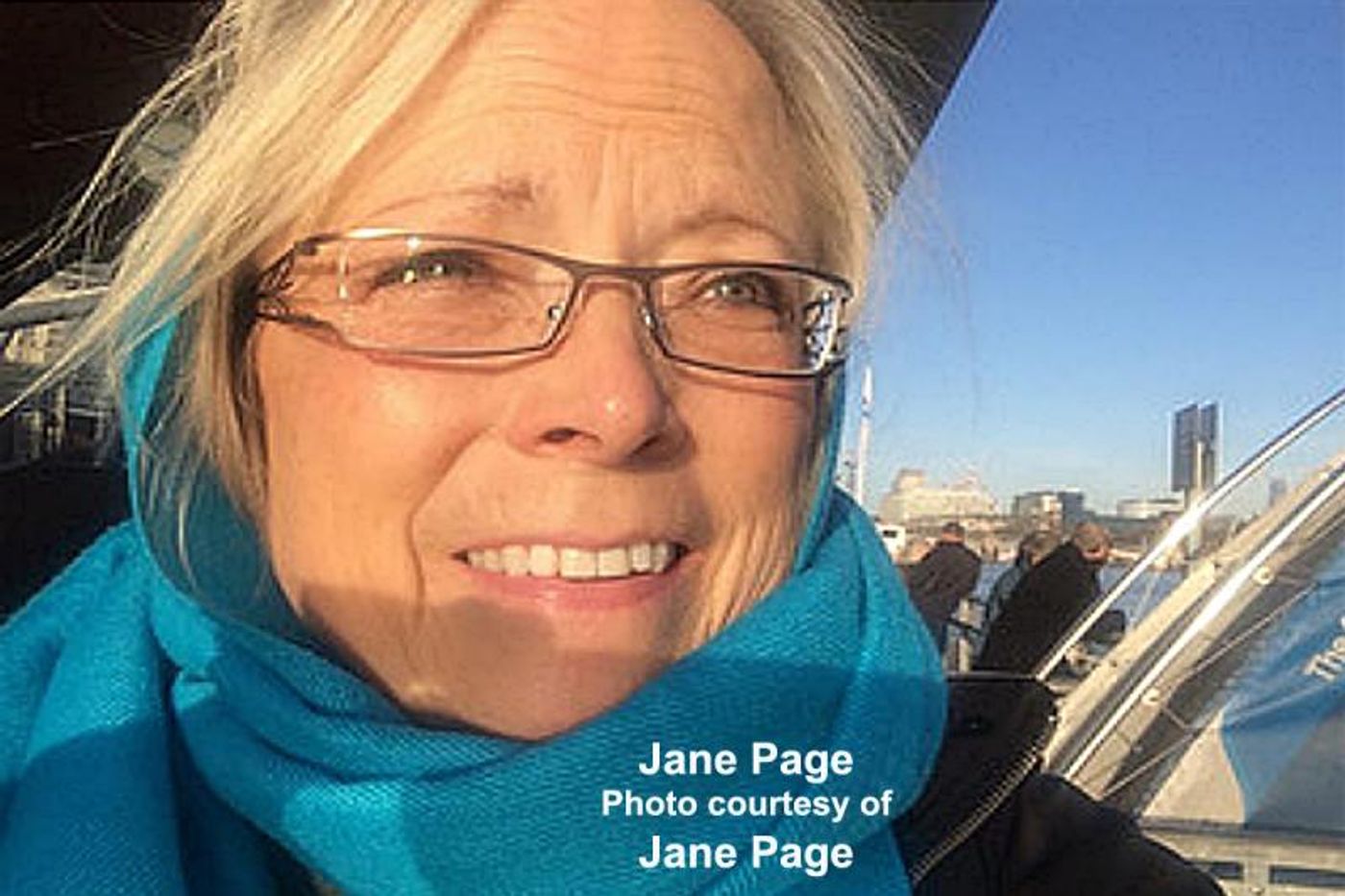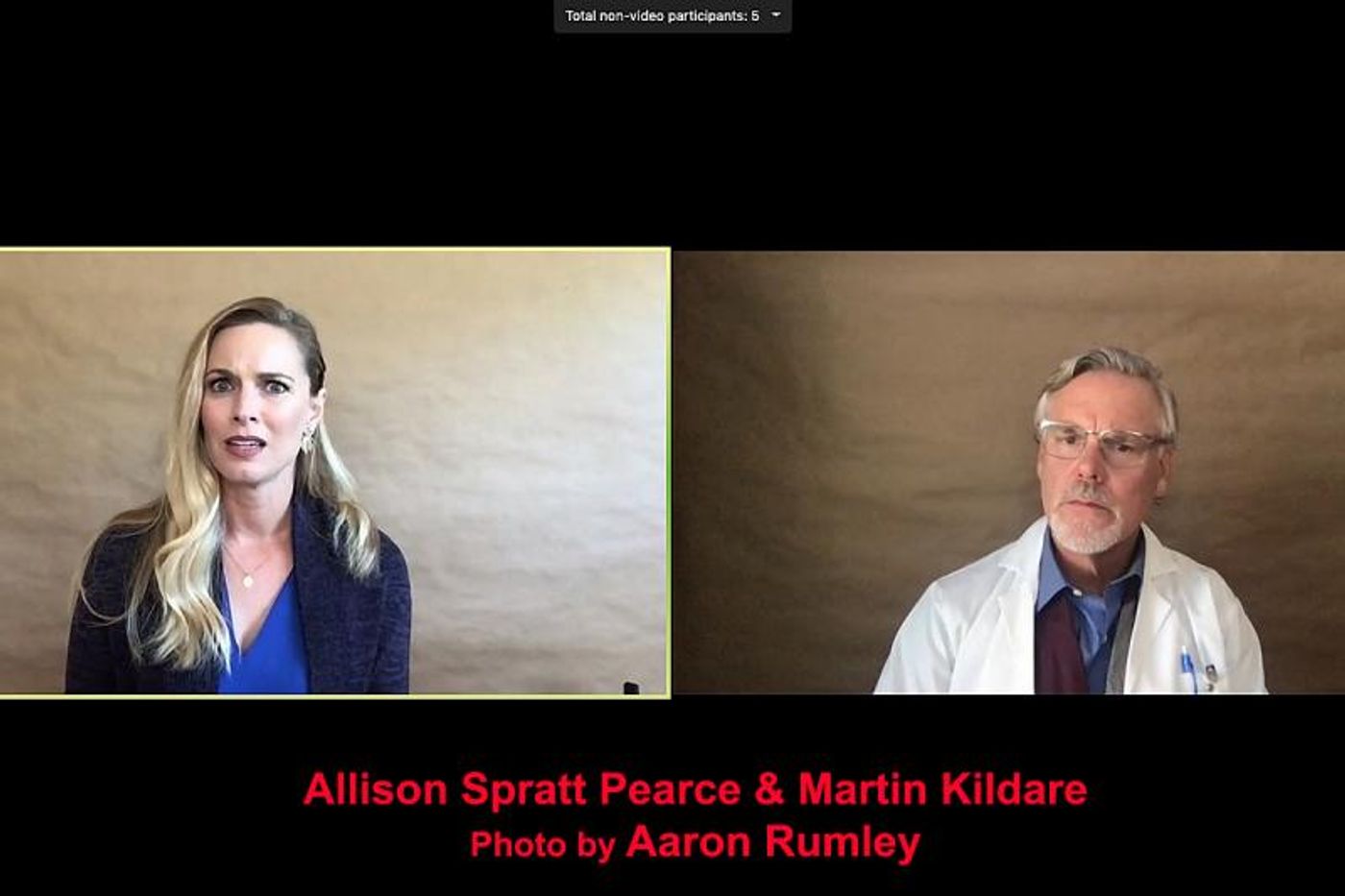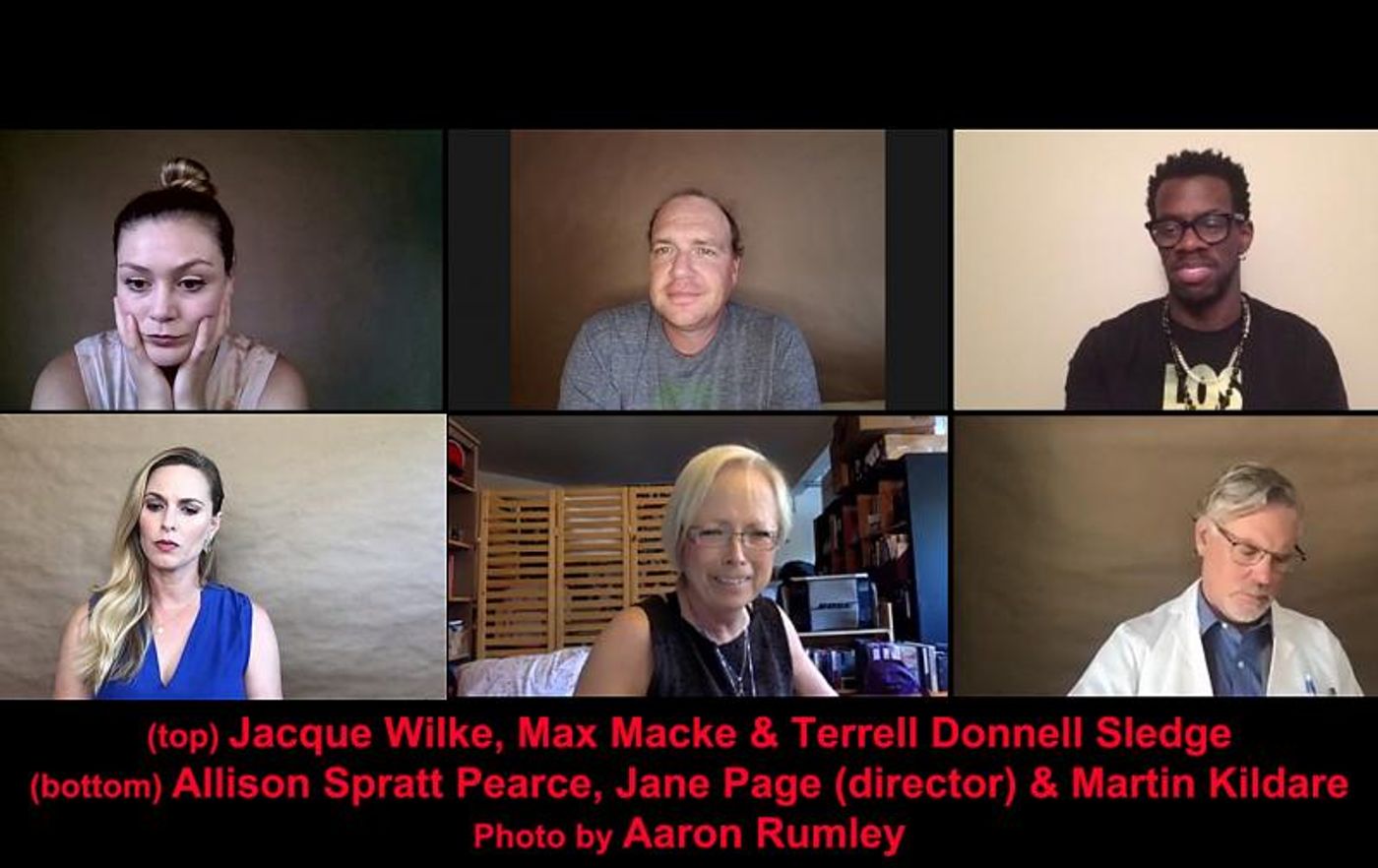Interview: Director Jane Page On HUMAN ERROR & New Forms of Storytelling

North Coast Rep's west coast premiere of playwright Eric Pfeffinger's HUMAN ERROR will go on as originally planned, only in these times of social distancing, being presented online from June 15 through June 29, 2020. HUMAN ERROR's a comedy of a medical mix-up that brings two couples of opposing life views together. Cast includes: Allison Spratt Pearce, Terrell Donnell Sledge, Max Macke, Jacque Wilke, and Martin Kildare.
I had the socially distancing opportunity to pose a few questions to HUMAN ERROR's director Jane Page.
Thank you for taking the time for this interview, Jane!
You're welcome.
So how are you doing in these crazy safe-at-home times?
I'm finding myself very, very busy. Everything seems to take a lot longer than normal. It's challenging not seeing people in three dimensions, but it's great to have this project to work on.
What creative and sane tasks are you achieving?
Well, that's an interesting question. Certainly working on HUMAN ERROR has been a great creative opportunity. And I have learned so much doing it.
I'm finishing up the last week of teaching at UCI, though all classes have been online. This was my first attempt to do that. That was challenging as technology is not necessarily in my natural skill set. But thankfully, it has been a way to stay connected to students, families and colleagues.
 You worked with playwright Eric Pfeffinger in developing his script of HUMAN ERROR. What circumstances brought your two talents together originally?
You worked with playwright Eric Pfeffinger in developing his script of HUMAN ERROR. What circumstances brought your two talents together originally?
In 2017, I was invited to direct Eric's play HUMAN ERROR at the Colorado New Play Summit at the Denver Center Theater Company. We had a great time working together on his wonderful play.
What cosmic forces brought this production of HUMAN ERROR to North Coast Rep?
When I met David (Ellenstein, North Coast Rep's artistic director) over a year ago, we had a great conversation about theatre, plays and the types of plays we find interesting. We both like comedies that really take on issues of the day. It was in that conversation I told David about HUMAN ERROR. He read it and liked it enough to do a "table read" of the play to see how it sounded. It was very funny and well-received. So, I was thrilled when he chose it for this season. When COVID-19 caused so many theaters to close and most productions to be canceled, David showed extraordinary determination to make sure something happened to bring this play to the theatre and community.
Is this your first virtual directing gig?
Yes, this is quite a unique experience and I appreciate that David trusted me with the opportunity.
What challenges have been coming up in not directing in the same room as your actors?
Well, it's really difficult. Fortunately, all of these actors were completely invested and totally game to try anything to make this form of storytelling make sense and work for the audience.
What advantages are you discovering directing virtually?
Hmmm...? OK, the only thing I can see as an advantage is that it's a great commute. Open and door, and you are in rehearsal. And it is better for the environment.
Have you worked with any of this HUMAN ERROR cast before?
 No, this cast was all new to me. Although I have known one actor for some time.
No, this cast was all new to me. Although I have known one actor for some time.
Were you part of the virtual casting sessions?
We actually auditioned most of the actors in person. But we did have one actor who auditioned via tape. But in this day and age, that sort of format for auditions is not that unusual.
You directed Shakespeare, world premieres, classics, comedies. Any particular genre you prefer? Or do you like to mix it up?
There are a lot of genres that excite and interest me, and I've been very fortunate to have an opportunity to direct a wide variety of plays and projects. I like variety and challenges.
You've directed in theatres worldwide, including Vienna, Edinburgh, Cairo; as well as many across the United States. Do you ever find you need to tailor/tweak your productions to a country's (or a region's) specific audiences?
I think the only place that I had to consider cultural differences was in Cairo. I was directing TARTUFFE, and at the core of the play is an attempted seduction. There were some specific issues around physically touching between men and women that had to be navigated. The cast was very open and the restrictions created some amazing opportunities for storytelling.
Have you found any noticeable differences in theatre audiences' responses from country to country?
I think the biggest difference is if an audience sees a play performed not in their native language. Sometimes, particularly with comedies, there may be a delay before the laugh line really lands and the audience responds. That can make the rhythm of the scene a little rocky for the actors.
Is there one lesson you always include in your classes? One Direction you always include in your rehearsals?
 I always try to express my gratitude to everyone in the room involved in the project. This is true in a classroom or rehearsal hall. It is a privilege to work in the theatre and to be with people who are dedicated to creating the experience of a shared event.
I always try to express my gratitude to everyone in the room involved in the project. This is true in a classroom or rehearsal hall. It is a privilege to work in the theatre and to be with people who are dedicated to creating the experience of a shared event.
Which gave you more gratification: winning the Fringe First Award at the Edinburgh International Festival? Or UCI naming you Professor of the Year in 2015?
These were both remarkable awards. I was thrilled and humbled to receive both.
Do you envision more online productions in the future, even as live theatres open up?
I think as long as we are dealing with shelter-in-place restrictions, there will continue to be online productions. There has been an explosion of opportunities and experiments that people are taking advantage of right now.
But, I also know that people long to be back in a room experiencing a story with a group of people in three-dimensions. So, hopefully we will be able to do that soon. When it is safe... for everyone.
But now, we have a new form of storytelling, and this form will expand theater making in the 21st-century. And who knows where all of this "Zooming" around will take us? And what will be the next form to emerge?
What encouraging words would you give today to our theatre community or to your home-bound students?
Hopefully, we are all gaining patience and compassion as we move through these very difficult times. Theatre is a powerful tool to reach out, to tell stories, and to stay connected. We have a responsibility to do all of that! We must stay connected.
Thank you again, Jane! I look forward to viewing HUMAN ERROR on my computer screen!
For Zoom access to screen HUMAN ERROR online June 15 through June 29, 2020; log onto northcoastrep.org

Videos

